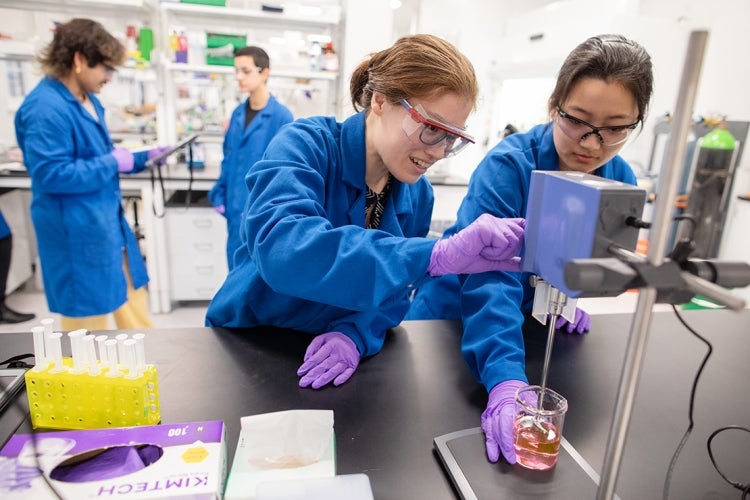A team of researchers at the University of Toronto is researching how to develop a pill to deliver treatment of chronic diseases that are currently managed by medications administered by injection.
Led by Caitlin Maikawa, the team aims to increase the accessibility of treatment by removing the burden on patients who are required to visit their doctor's office to receive medication.
"Taking a pill is the patient-preferred method of administration since it gives them autonomy over their treatment and the ability to easily do it themselves at home," says Maikawa, an assistant professor at the Institute for Biomedical Engineering in the Faculty of Applied Science & Engineering.
"We hope our research will lead to new technologies that will improve the efficacy of current therapeutics and reduce the patient burden associated with managing chronic diseases."
Maikawa is one of two U of T Engineering professors to receive funding from the latest round of the Canadian Foundation for Innovation John R. Evans Leaders Fund (CFI-JELF). The other recipient is Mohamad Moosavi, an assistant professor of chemical engineering and applied chemistry, whose research incorporates artificial intelligence to accelerate the discovery of new materials to combat climate change.
The support will help Maikawa's lab engineer dynamic polymer biomaterial systems to develop new drug delivery and bio-sensing technologies to treat chronic diseases, including inflammatory bowel disease and diabetes.
Polymers are large molecules composed of repeating structural units that can be designed to interact with disease markers in the body to target therapeutics to disease sites, time the release of therapeutics or even release signalling molecules for disease monitoring.

Maikawa's research group focuses on the design and synthesis of dynamic polymer systems by using stimuli-responsive chemistries, also known as affinity-based interactions - a concept where certain molecules respond to external stimuli and interact selectively with a particular substance - and applying these polymer materials to address challenges in treating chronic disease.
"One way of thinking about dynamic polymer systems is that we have a kind of molecular Velcro where these molecular units stick together when we make the material," says Maikawa. "But in the presence of disease markers in the body, the Velcro pulls apart allowing the material to degrade or in some cases to release the drug."
Maikawa's lab aims to collaborate with clinicians to understand how to address impactful challenges with biomaterials. Since chronic diseases are often difficult to manage, her team is looking at the whole picture of chronic disease treatment and its efficacy.
"It's our goal to develop technologies, such as a pill, that make disease management easier and more effective so that it easily fits into patient's lifestyles," she says.






